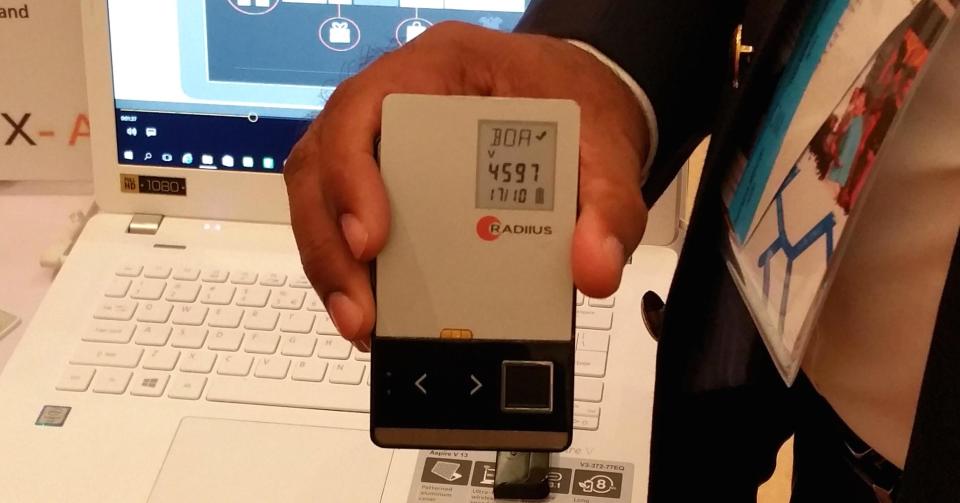Five tech innovations designed to solve life's little problems

Technology is usually a means to an end, not an end itself - any piece of technology that fails to solve a problem, or make something easier to do, remains a mere curiosity.
That point was underlined at the InnovFest UnBound digital technology conference in Singapore this week, where much of the tech on display was designed to solve specific life problems. These were five of the best.
Singapore startup Radiius has developed what it called a "card aggregation system." Multiple credit card details can be saved on the device, called Quadrus, that comes with its own chip-based card.
Users can select the credit card they wanted to use and the device will program the card accordingly, eliminating the need to carry around multiple credit cards in order to get all of the loyalty points and perks on offers at various outlets.
The technology is not yet available in the mass market.
A familiar and tedious part of online banking and e-commerce transactions is PIN authentication, done mostly with physical tokens issued by banks, which means users have to carry a physical token with them at all times.
Security software maker V-key, which is backed by Alibaba affiliate Ant Financial, has developed a technology called V-Tap, which virtualizes the process of PIN authentication using an app that can generate one-time-passwords.
The app is also fully threat-aware and can defend itself if a user's mobile phone is compromised, the company told CNBC.
Most residents of Asia know the dangers of a viral epidemic, having lived through the Severe Acute Respiratory Syndrome (SARS) outbreak in 2002, as well as 2009's H1N1 and 2015's MERS scares.
Temasek Polytechnic, a pre-tertiary learning institute in Singapore, developed an anti-viral respirator with a mouth-piece, hose and bag that can be worn like a backpack.
The technology is yet to be available to purchase but, in theory, during epidemics users can wear the mask to filter the air; the school claimed 99 percent of viruses passing through the device are killed using an ultraviolet light built into the apparatus.
While self-driving cars dominate headlines when it comes to automated vehicles, start-up Ctrlworks developed Axon, a robotic vehicle designed mostly for indoor use.
The vehicle has an on-board central processing unit that requires little power; it can navigate by itself using sensors to map the area and detect obstacles to avoid.
Its customizable design makes it useful in many environments, including hospitals and warehouses, according to Ctrlworks.
When dealing with a large supply volume, keeping track product can be tricky.
Logistics technology company Display It Card, a subsidiary of Japanese logistics company AIOI Systems, used near field communication (NFC) technology to develop an electronic paper called VisibleRFID.
Information can be written, read and transferred using NFC technology available in most smartphones, without needing to connect to the internet. The company said it would be most useful in areas where internet connectivity is sparse.

 Yahoo Autos
Yahoo Autos 
